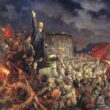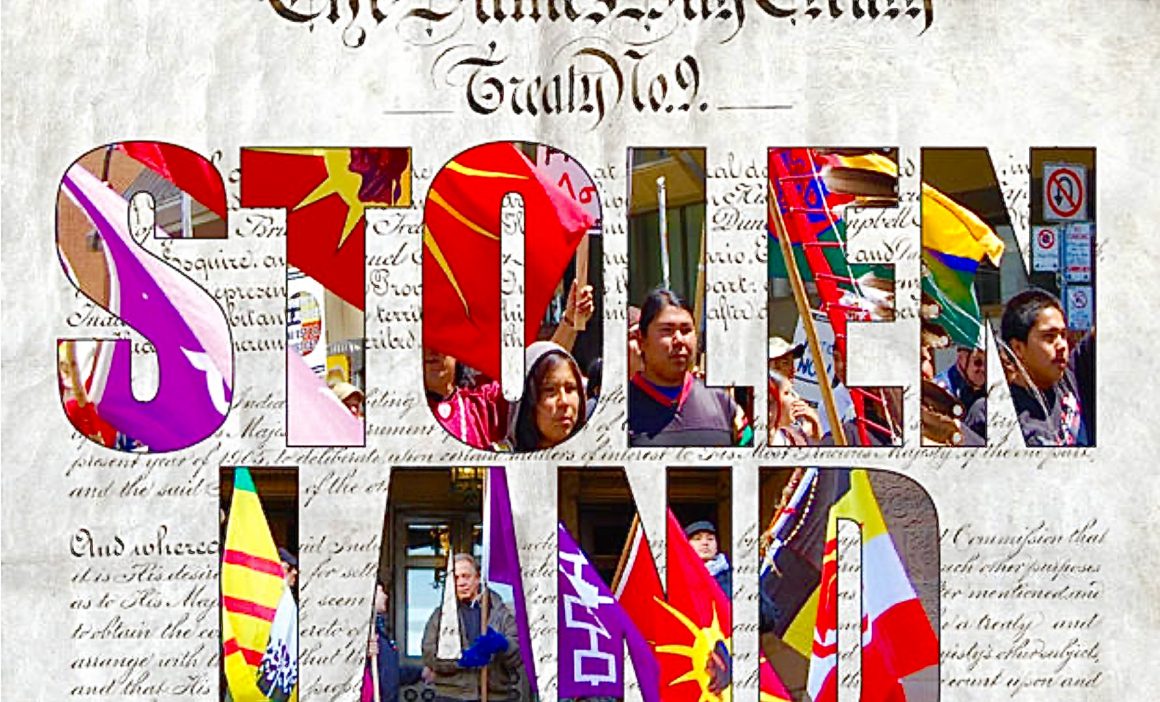Whenever you seek to bring about a proletarian revolution in a country that’s never had one, you need to formulate a theory which expands upon Marxism as it initially existed. Karl Marx was correct in his socioeconomic analysis, but he was only one man from one place and one time. And he and Engels weren’t right about everything. As the Marxist Earnest Mandel has written, “Marx and Engels were undeniably the product of their epoch. They could not completely rise above all the subjective limitations determined by the still excessively fragmentary experiences of proletarian and human emancipation. They were not infallible. They could not understand everything, explain everything, predict everything, even though they undeniably understood, explained and predicted what was essential. They had their failings.”
Mandel specified that “Engels was mistaken when he called the small Slav nationalities in 1848-1849 ‘peoples without history,’ incapable of constituting states or even truly independent nations. History proved him wrong in this respect. Marx was wrong when he applauded the annexation of California and other Mexican territories by the United States in 1845, and characterised the Mexicans as ‘lazy’ and incapable of exploiting the natural wealth of these territories. He repeated a racist prejudice in doing so.” Which are pertinent examples of incorrect ideas when it comes to the conditions of the United States, and to how today’s U.S. Marxists are so far interpreting these conditions.
Within the tendency of communists that call themselves the “patriotic socialists,” we see those same negative traits Engels and Marx had. The “patsocs” argue that the concept of U.S. patriotism should be upheld. Which doesn’t necessarily mean they desire to preserve the United States specifically, but invariably it means they oppose the idea of giving the First Nations full self-determination. Their rationale is that doing so would be inconsistent with historical materialism. But that was the same rationale Engels used to reject the idea that the Slavs could ever lead their own fully independent nation-states. Then the USSR proved him wrong by freeing the Slavs, and giving them the opportunity to form many Slavic republics. And all while utilizing his own socioeconomic theories.
It’s a fitting parallel to Engels that within America, the other great empire besides Russia that’s been formed upon conquered land mass since 1492, certain Marxists are now claiming the conquered peoples aren’t capable of fully governing their own ancestral territories. There’s a recurring trend here, one which stands in the way of America transitioning from an empire to a unified collection of nations as Russia did with the foundation of the USSR. The way to break this pattern of pro-colonial ideas within Marxism is not by engaging in book worship, not by interpreting everything Marx and Engels wrote as applicable to our conditions. It’s by analyzing our own conditions of settler-colonialism, and using that analysis to build upon Marxism for North America.
By building upon Marxism, I mean doing the equivalent of what every successful communist party has done throughout their battles against the forces of reaction. This is creating theory in response to what their local conditions demand. In Korea, Kim Il-Sung formulated Juche, the ideology that calls for national self-reliance in the face of perpetual imperialist siege. In China, Deng formulated Socialism with Chinese Characteristics, which emphasized how to build up the productive forces needed for bringing the country out of poverty. In Russia, Lenin broke from the beliefs of the original Marxist theorists by granting Slavic statehood. We in America must do the equivalent.
Our conditions require a new theoretical strain, rather than a copy-pasting of the theory which led to the USSR’s creation, because the modern U.S. empire is distinct from what the Russian empire was. As studied Russian Mikhail Noskov has written about how his country formed its empire compared to how the Europeans and European descendants formed their empires:
The Russian settler “colonialism” was much different in general than the one led by British, French, Spanish countries. Russian expansion (not colonialism) was never designed to enslave natives and/or replace them in their land. It was directed at peaceful co-habitation. All native elite was absorbed into Russian elite and this was the winning formula….Exceptions were in capturing the territories of Tatars, Northern China, and Caucasian Mountains (which is to south-west but I put this here for completeness). Yet native’s resistance was much less intense (except of Chechens in Caucasian Mountains) and was quickly overcome because of the previous capture of Kazan. I am not aware of any exceptions, the native peoples retained their territories, the boundaries of their land got clear delineation. Boundaries are still honored by the modern Russia.
Native people obtained access to the education, trade, common language, and travel. Some northern Siberian peoples were affected by alcoholism but Russians never used this to their advantage unlike the situation with Native Americans. A situation as the purchase of Manhattan would be considered “not fair” and against “God’s will”. Doing biological warfare (chickenpox-soaked items thrown into native villages) and plain extermination by massacre (visit Connecticut museum in Foxwood reservation) could not be even considered by Russian expeditions.
Though the Russian empire was in need of dissolution due to its very existence as an empire, even the medieval despotism of the tsar didn’t come close to the horrors which have been perpetrated by U.S. settler-colonialism. The U.S. empire’s ongoing occupation of its internal colonies is among the most barbaric acts in history, both because of its virtually unrivaled historical crimes against the oppressed nations and because its colonial genocide continues. For this country to be built, around 9 out of 10 Natives had to be murdered, and the Africans had to be enslaved with no reparations for their centuries-long unpaid labor. Today, the settler state’s war against these nations goes on, utilizing methods such as engineered police brutality and corporate destruction of Native water supplies. For these reasons, there’s no such thing as the “American” nation, like there’s such a thing as the Russian nation.
The U.S. is a prison of nations, masquerading as something which is held together by an overarching national identity. All of its patriotic songs, symbols, and other identity markers are products of one continuous war propaganda campaign, designed to manufacture consent for the imperial wars it’s been waging against targeted nations since its founding. Such a thing as the “United States” is as lacking in legitimacy as Washington’s military occupations in Iraq, Afghanistan, Korea, and other countries. The country is itself an illegal occupation, in violation of the right to sovereignty of the nations it exists upon.
For this reason, a socialist state that supplants the United States must not take the form of an authority that decides how much land the First Nations can or can’t have back. When these nations partner into a unified socialist federation, they’ll need to initially all have full jurisdiction over their ancestral territories. They should be given the choice of whether to join a unified socialist federation. And should the African nation ask to negotiate with them over setting aside an autonomous region, the land relations must be decided purely between these oppressed nations, not by a “socialist” version of Washington or the state governments. Communism’s goal here can’t be a “USSA,” but a fully post-colonial entity that avoids balkanization while fully upholding the self-determination of the nations that got their land stolen.
Such an idea makes the Marxists who take an Engels view on the national question recoil. They argue that giving the tribes jurisdiction over all the land, with the exceptions being whichever autonomous oblasts get set up, would bring rule by a small minority based on race. But if you see this as proof that full self-determination shouldn’t be pursued, this only speaks to your lack of imagination on decolonial theory, like how Engels lacked willingness to imagine statehood for his continent’s oppressed nations. The numerical disadvantage of the Indigenous peoples on this continent, and the numerical advantage of the settlers, mandates not an embrace of the U.S. governance model but the formulation of new theory suited to our conditions. We must reconcile this population disparity that settler-colonialism has created, and figure out how to make it work with full self-determination for these nations.
I don’t claim to have all the answers. But through talking to Indigenous communists, I’ve gotten an idea that can provide a big part of those answers: giving non-Natives the opportunity to become citizens of the colonized nations which have taken full jurisdictional control. We’re communists, not ethnic supremacists. We support proletarian democracy, which means democracy for proletarians of all colors. So we don’t support excluding non-Natives or non-Blacks from voting, participating in party nominating conventions, having their complaints be given a fair hearing, or other facets of proletarian democracy. This racial inclusion entails citizenship for all who desire to stay on this continent, including the settlers.
Under this scenario, the settlers will no longer be “settlers,” in the socioeconomic or cultural sense, but equal participants in a project to build socialism. They’ll no longer be placed above the peoples whose land and labor built this society’s wealth. Though the poorer settlers will likely be allowed to keep much of whatever land they’ve inherited, the bourgeois settler families will likely have their land seized in many cases, and obviously their forces of production will be seized as well. Under our conditions, ending settlerism is instrumental to ending capitalism, as the two have always been intertwined on this continent. Capitalism must be killed at the root, which in our case is colonialism. Capitalism wouldn’t have come here without colonialism, so it can’t leave without an end to colonialism.
Those who argue against these measures say that their stance is based in Marxism. And they’re not wrong, Marxism in its initial form indeed didn’t necessarily contradict pro-colonial ideas. But their analysis fails to account for all historical materialism that’s informed by the events after the formation of the first socialist state in 1917. The history of applying Marxism to practice has involved not stubbornly trying to replicate “Marxism” as Marx and Engels specifically understood it, but developing theories to build upon Marxism so the given conditions are appropriately responded to. Marx and Engels were scientists, not all-knowing gods. And we must also act as scientists, not as followers of a strict religious doctrine.
—————————————————————————
If you appreciate my work, I hope you become a one-time or regular donor to my Patreon account. Like most of us, I’m feeling the economic pinch during late-stage capitalism, and I need money to keep fighting for a new system that works for all of us. Go to my Patreon here.









Thanks for sharing. I read many of your blog posts, cool, your blog is very good.